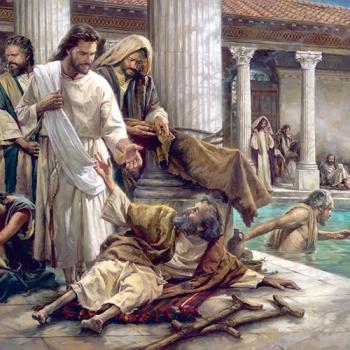
Jeremiah 29:11 is one of the most cherished verses in the Bible: “For I know the plans I have for you, declares the LORD, plans for welfare and not for evil, to give you a future and a hope.”
Although originally written for ancient Judah, this promise still shows up today on coffee mugs, calendars, T-shirts, and even tattoos.It reminds us that God’s plans are sovereign even in our pain.
One of God’s purposes in our suffering is to teach us how to pray with faith. As Jeremiah continues, “Then you will call upon me and come and pray to me, and I will hear you. You will seek me and find me, when you seek me with all your heart. I will be found by you, declares the LORD, and I will restore your fortunes and gather you from all the nations and all the places where I have driven you, declares the LORD, and I will bring you back to the place from which I sent you into exile” (vv. 12–14).
Sin causes inevitable suffering, which leads to anguished prayer, then ultimately restoration.
Cry Out for Mercy (vv. 1–10)
First, however, we must cry out to God for mercy. The prophet laments on behalf of his people: “Remember, O LORD, what has befallen us; look, and see our disgrace!” (Lamentations 5:1). Unlike the previous four chapters, Lamentations 5 is not an acrostic. Its twenty-two verses retain the poetic structure, but the style is more raw—a desperate outpouring of a heart in pain.
Three imperatives sharply punctuate the opening verse: “Remember! Look! See!” These call upon the covenant God to act, to remember his promises (1:7, 9; 2:1; 3:19, 20), and to look upon his people’s suffering (1:11, 12; 2:20). Perhaps if he sees their pain, he will stop withholding mercy.
The “disgrace” which has “befallen” them is that their land is occupied by enemies: “Our inheritance has been turned over to strangers, our homes to foreigners” (5:2; see Deuteronomy 28:20; Jeremiah 6:12). When Jerusalem fell to Babylon, their homes were overtaken by invaders. Later, even when Babylon departed, the Edomites and Arabs moved in.
War and exile took the lives of countless men whose bereaved children now lament, “We have become orphans, fatherless; our mothers are like widows” (Lamentations 5:3; see Exodus 22:21–24). The death of earthly fathers proves their heavenly Father’s abandonment.
They feel helpless, unprotected, and alone. Water and wood are scarce, so they beg and borrow for these basic life necessities: “We must pay for the water we drink; the wood we get must be bought” (Lamentations 5:4; see Deuteronomy 28:47–48). Persecution dogs their every step: “Our pursuers are at our necks; we are weary; we are given no rest” (Lamentations 5:5). Although exhausted from hard labor, their masters will not let them rest.
In desperation, Judah seeks protection and provision from foreign allies: “We have given the hand to Egypt, and to Assyria, to get bread enough” (Lamentations 5:6; see Jeremiah 2:18–19, 36). They put their trust in man, instead of God. So, Jeremiah pleads, “Our fathers sinned, and are no more; and we bear their iniquities” (Lamentations 5:7). The children bear the consequences, just as decisions we make today will impact future generations.
So, the tables turn in Judah as former subjects now rule the kingdom: “Slaves rule over us; there is none to deliver us from their hand” (v. 8; see Deuteronomy 28:43–44, 48). Instead of their own king, Judah is ruled by the puppet kings of Babylon (e.g., 2 Kings 25:22).
“We get our bread at the peril of our lives, because of the sword in the wilderness” (Lamentations 5:9; see Deuteronomy 28:33). Like mice, they scurry from their hiding places to gather crumbs, for the cat may pounce at any moment. So, “our skin is hot as an oven with the burning heat of famine” (Lamentations 5:10; see 4:8). Their bodies wilt with hunger, and their skin is scorched by the heat of summer.
In times of intense suffering, we can only cry to God for mercy: “Lord, help us! Look upon our pain! Remember us in our distress!”
Our lament tells God honestly how we feel. Although he knows our situation, he still wants to hear our prayers. So, Jeremiah’s book of Lamentations gives us a voice for many trials: poverty, shame, abandonment, property loss, bondage, weariness, extortion, danger, despair, false gods, faith in man, the sins of previous generations, hunger and thirst, sickness, and death. When we are hurt, we run like children to our Father and show him all our “ow-ees.”
We cry to him for help as we openly express our pain.
10/28/2024 12:03:36 PM





